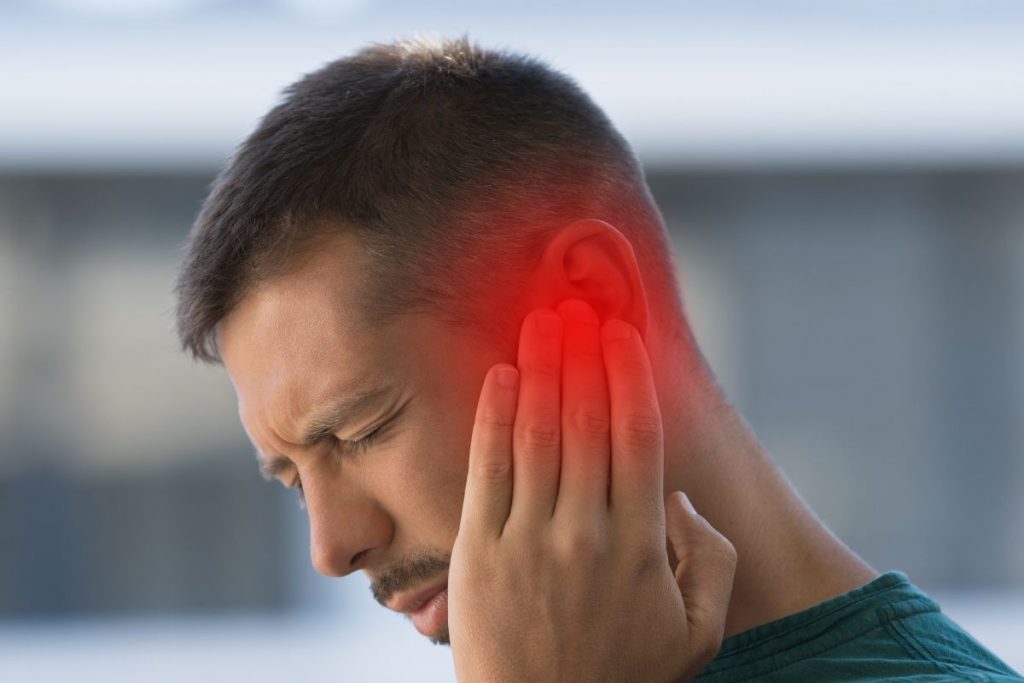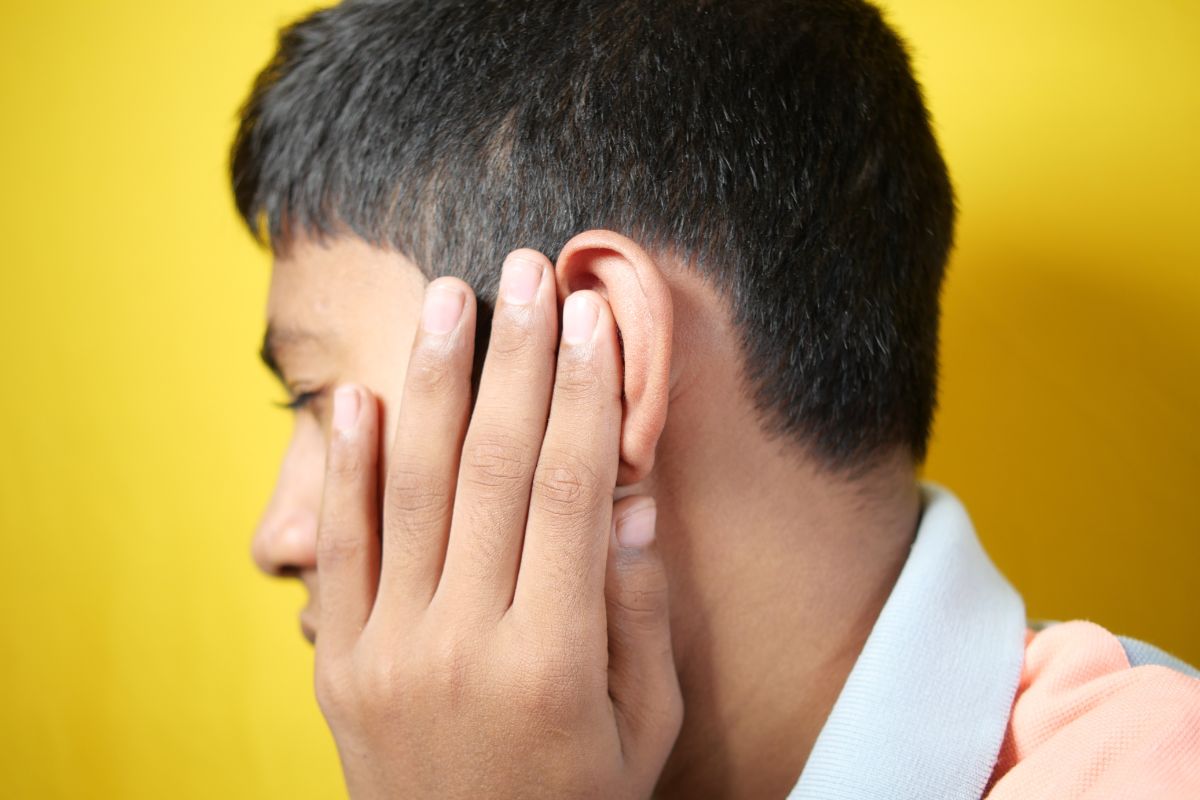Introduction - The Connection Between Sinus Health and Ear Health

In the discourse presented here, Dr. Shree Rao provides The Connection Between Sinus Health and Ear Health. She is the Best Doctor for Cochlear Implants.
In the intricate network of the human body, the connection between sinus health and ear health is profound and often underestimated. Dr. Shree Rao and other medical professionals recognize the intricate interplay between these two systems, understanding that disturbances in sinus health can have significant repercussions on ear function, and vice versa. This introduction delves into the critical relationship between sinus and ear health, exploring how conditions affecting the sinuses can impact the ears, and vice versa. By understanding this connection, individuals can better appreciate the importance of maintaining optimal health in both areas to ensure overall well-being and quality of life.
Anatomy of the Sinuses and Ears
Sinuses
The sinuses, a series of hollow air-filled spaces within the skull bones, play multifaceted roles in respiratory function, vocal resonance, and skull morphology. These interconnected cavities are lined with mucous membranes that produce mucus, a viscous fluid that helps to humidify and filter inspired air. The four pairs of sinuses—frontal, maxillary, ethmoid, and sphenoid—strategically located within the cranial bones, collectively contribute to various physiological processes.
The frontal sinuses, positioned behind the forehead in the frontal bone, serve to lighten the weight of the skull and provide protection to the brain. The maxillary sinuses, situated behind the cheeks within the maxilla bone, play a role in vocal resonance and contribute to facial aesthetics. Ethmoid sinuses, nestled between the eyes in the ethmoid bone, aid in air filtration and provide structural support to the nasal cavity. Lastly, the sphenoid sinuses, located behind the nose within the sphenoid bone, assist in maintaining cranial stability and facilitating efficient airflow.
Ears
The ear, a complex sensory organ responsible for auditory perception and equilibrium, comprises three main regions: the outer ear, middle ear, and inner ear. Each component of the ear performs specialized functions essential for sound detection, transmission, and balance regulation.
The outer ear consists of the visible external ear, known as the pinna, and the ear canal, or auditory canal, which directs sound waves toward the eardrum. The middle ear, housed within the tympanic cavity of the temporal bone, contains the eardrum (tympanic membrane) and three small bones called ossicles—the malleus (hammer), incus (anvil), and stapes (stirrup). These ossicles form a chain-like structure that amplifies and transmits sound vibrations from the eardrum to the inner ear.
The inner ear, nestled within the temporal bone, comprises intricate structures essential for hearing and balance. The cochlea, resembling a snail shell, contains sensory hair cells that convert sound waves into neural signals sent to the brain for interpretation. Adjacent to the cochlea are the vestibule and semicircular canals, which contribute to spatial orientation and equilibrium by detecting head movement and gravitational forces.
Function and Importance of Sinuses and Ears
- Respiratory Function: The sinuses help to humidify and filter inspired air before it reaches the lungs, contributing to respiratory health.
- Lighten Skull Weight: Sinuses lighten the weight of the skull, making it easier to support and reducing strain on the neck and back.
- Vocal Resonance: Sinuses play a role in vocal resonance by modifying the quality of sound produced during speech.
- Structural Support: They provide structural support to the nasal cavity, maintaining its shape and integrity.
- Auditory Perception: The ears detect sound waves and convert them into neural signals, allowing for auditory perception and interpretation.
- Balance Regulation: The inner ear helps to regulate balance by detecting head movement and gravitational forces, contributing to postural stability.
- Amplification of Sound: The middle ear amplifies and transmits sound vibrations from the outer ear to the inner ear, enhancing auditory sensitivity.
- Protection: The ears provide protection against foreign objects, insects, and harmful noise levels, helping to preserve hearing health.
Sinus Health and Ear Health Interconnection
Impact of Sinus Health on Ear Health
- Eustachian Tube Function: The sinuses and ears are connected by the Eustachian tube, a narrow passage that helps equalize pressure between the middle ear and the environment. Sinus congestion or inflammation can affect Eustachian tube function, leading to ear pressure, pain, or fluid accumulation in the middle ear.
- Inflammation and Infection: Sinus infections or inflammation can spread to the ears through the Eustachian tube, causing conditions such as otitis media (middle ear infection) or otitis externa (outer ear infection). These infections can result in ear pain, hearing loss, and other ear-related symptoms.
- Allergic Rhinitis: Allergic rhinitis, commonly known as hay fever, can cause sinus congestion, nasal inflammation, and ear symptoms such as itching, pressure, or fullness. Allergens that trigger sinus symptoms can also affect the ears, exacerbating existing ear conditions or leading to new ones.
Impact of Ear Health on Sinus Health
- Middle Ear Effusion: Fluid accumulation in the middle ear, often associated with ear infections or Eustachian tube dysfunction, can lead to sinus symptoms such as facial pressure, headache, or discomfort. Chronic middle ear effusion may contribute to recurrent sinus infections or exacerbate existing sinus conditions.
- Reflex Mechanisms: Conditions affecting the ears, such as inner ear disorders or vestibular dysfunction, can trigger reflex mechanisms that impact sinus function. Symptoms such as vertigo or dizziness may influence nasal airflow and mucus production, potentially exacerbating sinus-related symptoms.
- Treatment Considerations: Medications or interventions aimed at treating ear conditions may have secondary effects on sinus health. For example, nasal decongestants prescribed for Eustachian tube dysfunction may also alleviate sinus congestion, improving overall sinus health.
Common Sinus Conditions and Their Impact on Ear Health

- Sinusitis: Inflammation of the sinuses can cause facial pain, pressure, congestion, and postnasal drip. Maxillary sinusitis, affecting the cheeks near the Eustachian tube openings, disrupts Eustachian tube function, leading to ear pressure or infections.
- Allergic Rhinitis: Immune reactions to allergens result in symptoms like nasal congestion, sneezing, and itching. Allergic rhinitis can also affect the ears, causing itching, pressure, or discomfort due to impaired Eustachian tube function from nasal congestion.
- Nasal Polyps: Noncancerous growths in the nasal passages obstruct airflow, causing congestion and facial pressure. Blocked drainage pathways from nasal polyps increase the risk of sinus infections, affecting Eustachian tube function and leading to ear pressure or fullness.
- Chronic Sinusitis: Persistent sinus inflammation lasting over 12 weeks can result from factors like nasal polyps or anatomical abnormalities. It leads to recurrent infections, congestion, and facial pain, impacting Eustachian tube function and predisposing to middle ear infections.
- Sinus Headaches: Pain or pressure in the forehead, cheeks, or around the eyes characterizes sinus headaches. While primarily affecting sinuses, the discomfort can extend to the ears, causing fullness or discomfort.
Ear Conditions and Their Impact on Sinus Health
- Otitis Media: Middle ear infections can affect sinus health by causing inflammation and pressure changes that interfere with Eustachian tube function, leading to impaired sinus drainage.
- Eustachian Tube Dysfunction: Dysfunction of the Eustachian tube can disrupt sinus drainage, increasing the risk of sinus infections or exacerbating existing sinus conditions.
- Otitis Externa: Swimmer’s ear can lead to inflammation that extends to nearby sinuses, disrupting natural drainage pathways and contributing to sinus congestion or infections.
- Barotrauma: Changes in barometric pressure can cause inflammation in the Eustachian tube, impairing sinus drainage and increasing susceptibility to sinus-related complications.
- Impacted Earwax: Excessive earwax buildup can block the ear canal, resulting in pressure changes that affect both the ear and sinuses, leading to discomfort or exacerbation of sinus conditions.
Impact of Sinus and Ear Health on Overall Well-being
- Physical Discomfort: Sinus and ear conditions often cause discomfort, pain, and pressure in the head and face, impacting individuals’ ability to concentrate, work, or engage in daily activities. Symptoms such as nasal congestion, ear pain, or headaches can lead to fatigue, irritability, and decreased productivity.
- Sleep Disturbances: Sinus congestion, ear pain, or associated symptoms can disrupt sleep patterns, leading to insomnia, daytime drowsiness, and reduced quality of rest. Sleep disturbances can further exacerbate sinus and ear issues, creating a cycle of discomfort and sleep disruption.
- Communication Challenges: Ear conditions such as hearing loss or ear pain can affect communication abilities, making it difficult to engage in conversations, follow instructions, or participate in social activities. Similarly, sinus congestion or nasal obstruction can affect speech clarity and vocal resonance, impacting interpersonal interactions.
- Emotional Impact: Chronic sinus and ear conditions can have a profound emotional toll, leading to feelings of frustration, anxiety, or depression. Persistent discomfort or functional limitations may erode self-esteem, confidence, and overall emotional well-being.
- Social Withdrawal: Individuals with sinus or ear health issues may withdraw from social activities or avoid gatherings due to embarrassment, discomfort, or fear of judgment. Social isolation can exacerbate feelings of loneliness, alienation, and reduced quality of life.
- Work and Academic Performance: Sinus and ear conditions can affect work or academic performance, leading to absenteeism, decreased productivity, and difficulties concentrating. Persistent symptoms may interfere with cognitive function, memory, and problem-solving abilities.
- Quality of Life: Chronic sinus and ear conditions can significantly impact overall quality of life, limiting participation in activities, hobbies, or leisure pursuits. Physical discomfort, emotional distress, and functional limitations may diminish life satisfaction and hinder fulfillment.
Conclusion - The Connection Between Sinus Health and Ear Health
In conclusion, the intricate connection between sinus health and ear health underscores the importance of holistic healthcare practices. As Dr. Shree Rao and other medical experts emphasize, maintaining optimal health in both areas is crucial for overall well-being and quality of life. By recognizing the interplay between sinus and ear conditions, individuals can take proactive steps to address issues in one area that may affect the other. Through ongoing education, awareness, and collaboration with healthcare professionals, individuals can strive to achieve and maintain optimal sinus and ear health, ensuring a better quality of life for themselves and their loved ones.

Why consult EarSurgeon, Dr. Shree Rao?
Dr. Shree Cuddapah Rao is acclaimed as one of the best pediatric ENT specialists in Hyderabad. With 10+ years of deep domain experience in the field of ENT, she is the director at Dr. Rao’s ENT Super Specialty Hospital. She underwent specialized training in Rhinoplasty / Facial Plastic surgery at Singapore General Hospital, Singapore. She also underwent advanced training in cochlear implant surgery under Padmashri Dr. Milind V Kirtane and had a Fellowship in a cochlear implant. Having performed over 200 successful cochlear implants for patients worldwide, Dr. Shree Cuddapah Rao is also the recipient of several prestigious accolades in the domain of ENT. Dr. Shree Rao is one of the best ent doctor in hyderabad, to book an appointment click here.
Are you looking for
then you have landed at right place!







